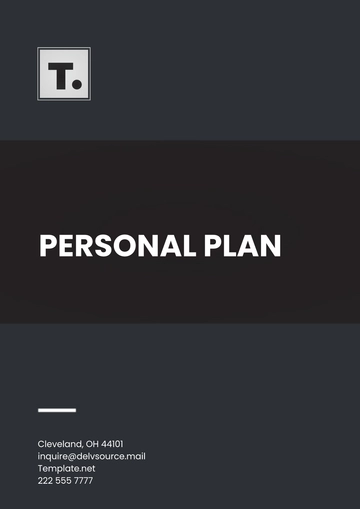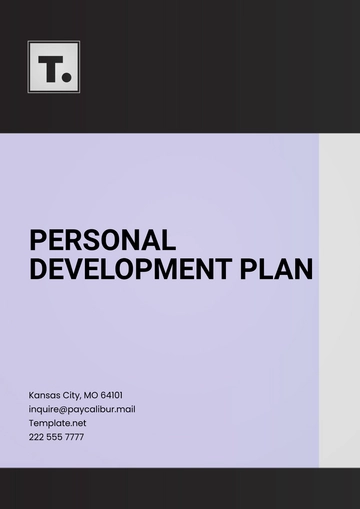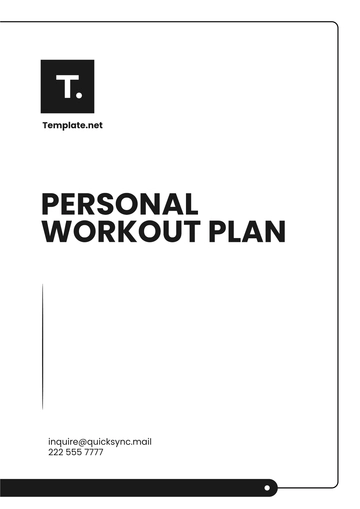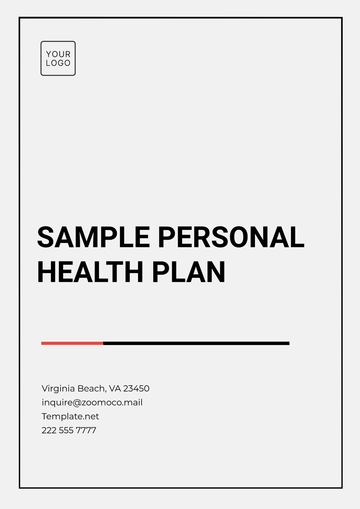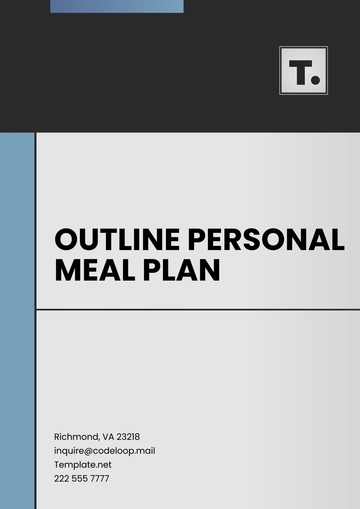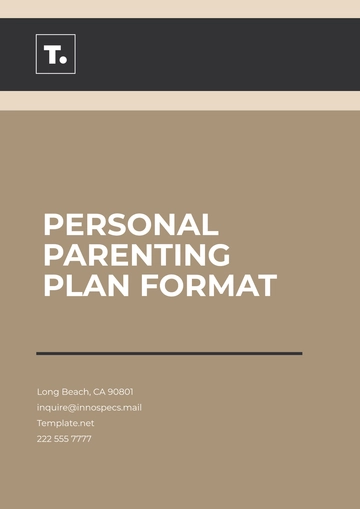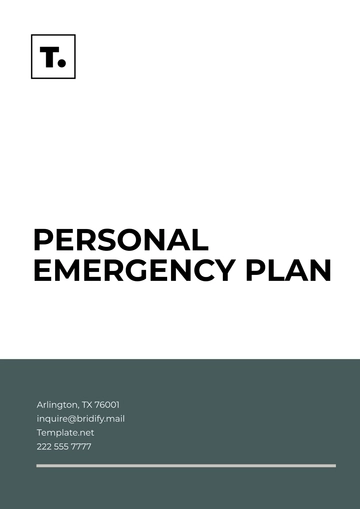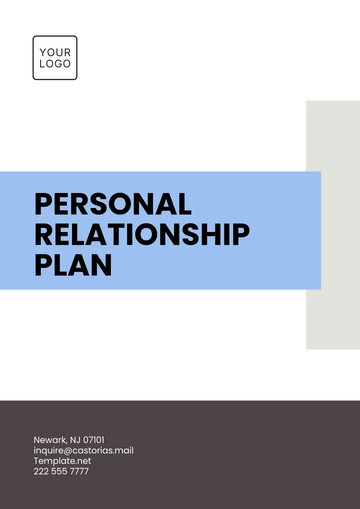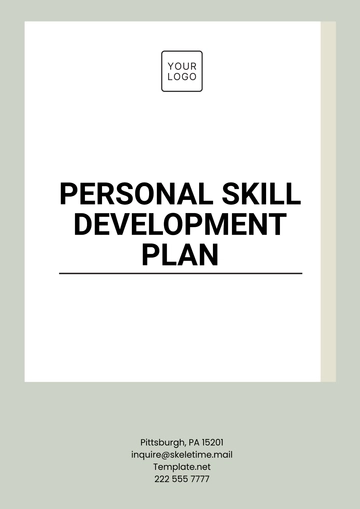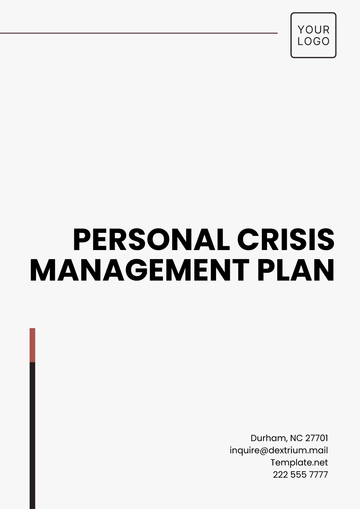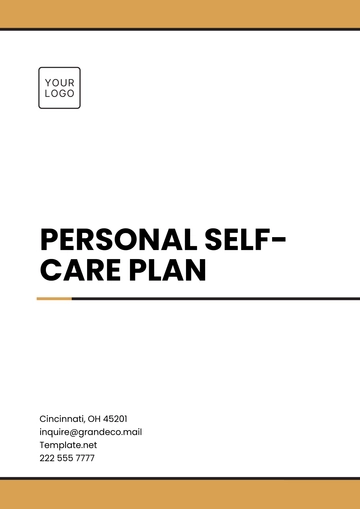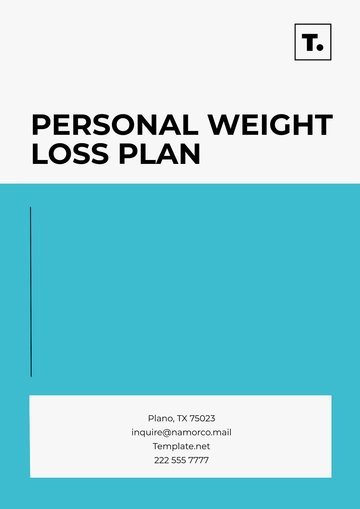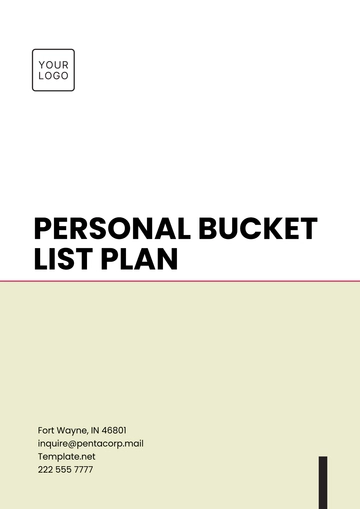Free Personal Care Plan
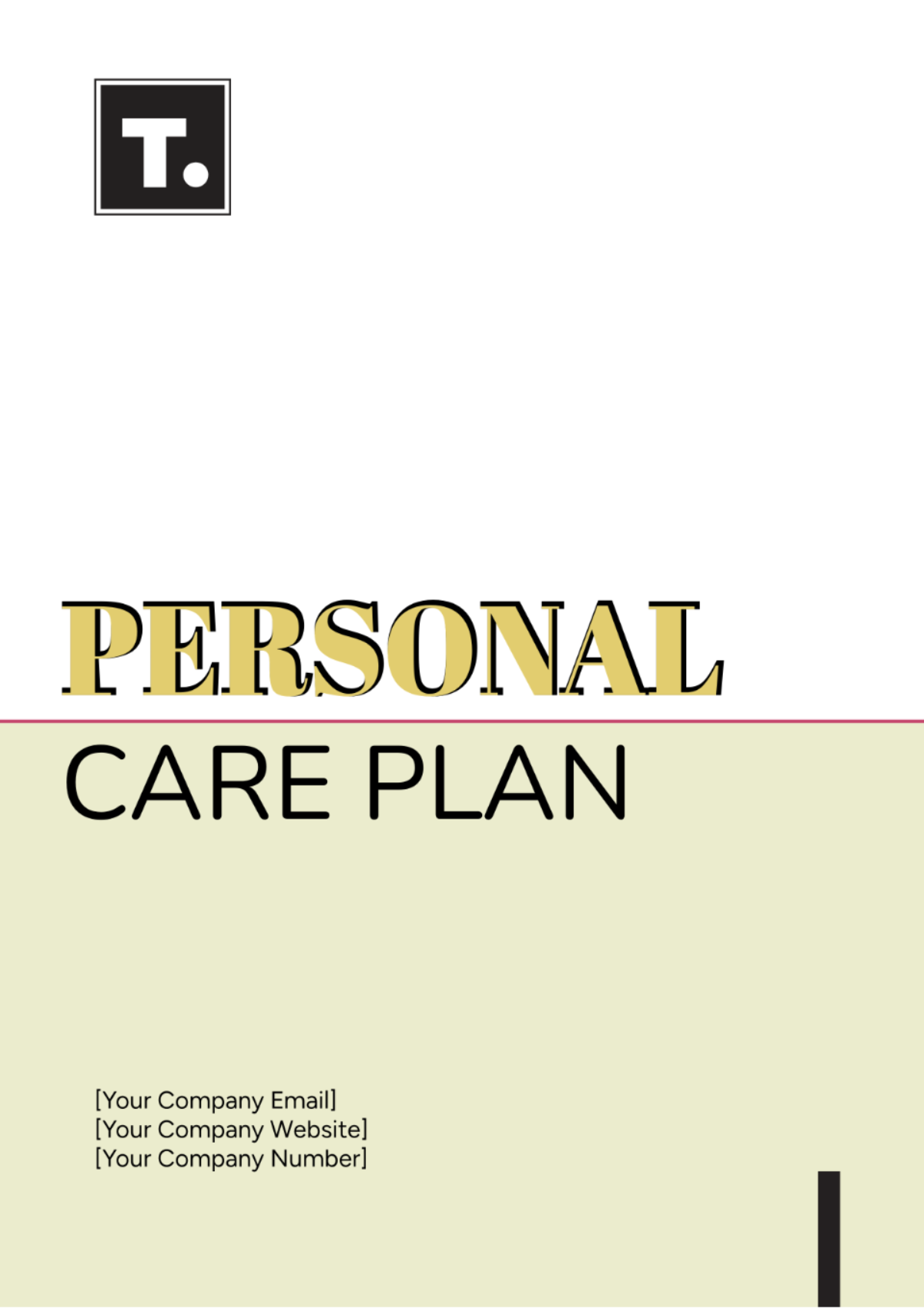
Client Information | Details |
|---|---|
Patient Name | [Your Name] |
Date of Birth | [Your DOB] |
Address | [Your Address] |
Contact Information | [Phone Number], [Email Address] |
Emergency Contact | [Emergency Contact Name], [Emergency Contact Phone Number] |
I. Introduction
This Personal Care Plan is crafted to aid individuals in their recovery from injuries, addressing physical, emotional, and psychological needs. Through a holistic approach encompassing therapy, pain management, and support, we aim to facilitate optimal healing and restore independence. Collaboration and communication among healthcare professionals, clients, and caregivers are pivotal in ensuring a comprehensive and patient-centered care journey.
II. Goals
Physical Recovery: To facilitate the client's physical recovery from the injury.
Pain Management: To minimize pain and discomfort associated with the injury.
Mobility Improvement: To enhance the client's mobility and range of motion.
Independence Regain: To support the client in regaining independence in daily activities.
Prevent Complications: To prevent any potential complications during the recovery process.
III. Care Plan
1. Physical Therapy:
Schedule regular physical therapy sessions to promote healing and improve mobility.
Incorporate exercises tailored to the specific injury and the client's capabilities.
Monitor progress and adjust therapy as needed.
2. Pain Management:
Administer prescribed pain medication as directed by the healthcare provider.
Utilize non-pharmacological pain management techniques such as heat therapy, ice packs, or massage.
Educate the client on pain management strategies and encourage open communication about pain levels.
3. Assistive Devices:
Assess the need for assistive devices such as crutches, walkers, or braces.
Provide training on the proper use of assistive devices to ensure safety and maximize effectiveness.
Regularly evaluate the fit and functionality of assistive devices and make adjustments as necessary.
4. Rehabilitation Exercises:
Design a customized exercise program focusing on strength, flexibility, and balance.
Monitor the client's progress and adjust the exercise regimen accordingly.
Encourage the client to adhere to the exercise plan and provide positive reinforcement.
5. Wound Care (if applicable):
Follow the healthcare provider's instructions for wound care including cleaning, dressing changes, and monitoring for signs of infection.
Educate the client and caregivers on proper wound care techniques.
Report any concerns or changes in the wound to the healthcare provider promptly.
6. Nutrition and Hydration:
Ensure the client receives adequate nutrition to support healing and recovery.
Encourage hydration to prevent dehydration, which can impede the healing process.
Collaborate with a dietitian if necessary to address specific nutritional needs.
7. Psychological Support:
Provide emotional support and encouragement to the client throughout the recovery process.
Offer counseling or therapy services to address any psychological challenges or concerns.
Foster a positive and supportive environment to promote mental well-being.
8. Follow-up Care:
Schedule regular follow-up appointments with the healthcare provider to monitor progress and adjust the care plan as needed.
Communicate any changes or concerns to the healthcare team promptly.
Provide ongoing education and support to the client and caregivers to promote long-term recovery and wellness.
IV. Emergency Procedures
Review emergency procedures with the client and caregivers in case of any unforeseen complications.
Ensure access to emergency contact information and necessary medical supplies.
Reinforce the importance of seeking immediate medical attention for any concerning symptoms or emergencies.
V. Signature

[Healthcare Professional Name]
[Date]
- 100% Customizable, free editor
- Access 1 Million+ Templates, photo’s & graphics
- Download or share as a template
- Click and replace photos, graphics, text, backgrounds
- Resize, crop, AI write & more
- Access advanced editor
Prioritize individual well-being with Template.net's Personal Care Plan Template. Tailor strategies to unique needs, promoting holistic care. Editable in our AI Editor Tool for seamless customization, ensuring precision and effectiveness in personal care provision.
You may also like
- Finance Plan
- Construction Plan
- Sales Plan
- Development Plan
- Career Plan
- Budget Plan
- HR Plan
- Education Plan
- Transition Plan
- Work Plan
- Training Plan
- Communication Plan
- Operation Plan
- Health And Safety Plan
- Strategy Plan
- Professional Development Plan
- Advertising Plan
- Risk Management Plan
- Restaurant Plan
- School Plan
- Nursing Home Patient Care Plan
- Nursing Care Plan
- Plan Event
- Startup Plan
- Social Media Plan
- Staffing Plan
- Annual Plan
- Content Plan
- Payment Plan
- Implementation Plan
- Hotel Plan
- Workout Plan
- Accounting Plan
- Campaign Plan
- Essay Plan
- 30 60 90 Day Plan
- Research Plan
- Recruitment Plan
- 90 Day Plan
- Quarterly Plan
- Emergency Plan
- 5 Year Plan
- Gym Plan
- Personal Plan
- IT and Software Plan
- Treatment Plan
- Real Estate Plan
- Law Firm Plan
- Healthcare Plan
- Improvement Plan
- Media Plan
- 5 Year Business Plan
- Learning Plan
- Marketing Campaign Plan
- Travel Agency Plan
- Cleaning Services Plan
- Interior Design Plan
- Performance Plan
- PR Plan
- Birth Plan
- Life Plan
- SEO Plan
- Disaster Recovery Plan
- Continuity Plan
- Launch Plan
- Legal Plan
- Behavior Plan
- Performance Improvement Plan
- Salon Plan
- Security Plan
- Security Management Plan
- Employee Development Plan
- Quality Plan
- Service Improvement Plan
- Growth Plan
- Incident Response Plan
- Basketball Plan
- Emergency Action Plan
- Product Launch Plan
- Spa Plan
- Employee Training Plan
- Data Analysis Plan
- Employee Action Plan
- Territory Plan
- Audit Plan
- Classroom Plan
- Activity Plan
- Parenting Plan
- Care Plan
- Project Execution Plan
- Exercise Plan
- Internship Plan
- Software Development Plan
- Continuous Improvement Plan
- Leave Plan
- 90 Day Sales Plan
- Advertising Agency Plan
- Employee Transition Plan
- Smart Action Plan
- Workplace Safety Plan
- Behavior Change Plan
- Contingency Plan
- Continuity of Operations Plan
- Health Plan
- Quality Control Plan
- Self Plan
- Sports Development Plan
- Change Management Plan
- Ecommerce Plan
- Personal Financial Plan
- Process Improvement Plan
- 30-60-90 Day Sales Plan
- Crisis Management Plan
- Engagement Plan
- Execution Plan
- Pandemic Plan
- Quality Assurance Plan
- Service Continuity Plan
- Agile Project Plan
- Fundraising Plan
- Job Transition Plan
- Asset Maintenance Plan
- Maintenance Plan
- Software Test Plan
- Staff Training and Development Plan
- 3 Year Plan
- Brand Activation Plan
- Release Plan
- Resource Plan
- Risk Mitigation Plan
- Teacher Plan
- 30 60 90 Day Plan for New Manager
- Food Safety Plan
- Food Truck Plan
- Hiring Plan
- Quality Management Plan
- Wellness Plan
- Behavior Intervention Plan
- Bonus Plan
- Investment Plan
- Maternity Leave Plan
- Pandemic Response Plan
- Succession Planning
- Coaching Plan
- Configuration Management Plan
- Remote Work Plan
- Self Care Plan
- Teaching Plan
- 100-Day Plan
- HACCP Plan
- Student Plan
- Sustainability Plan
- 30 60 90 Day Plan for Interview
- Access Plan
- Site Specific Safety Plan
